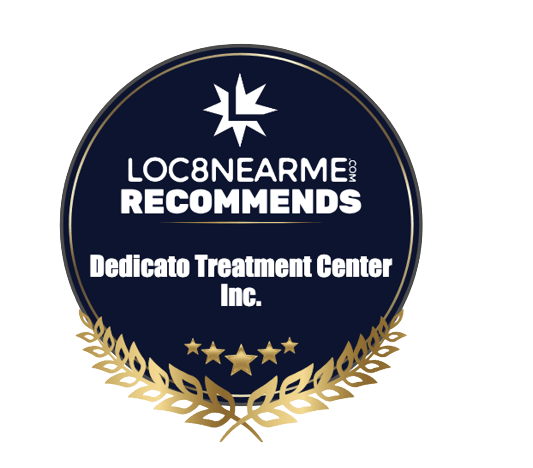If you’re struggling with addiction or mental health issues, getting help is one of the most important decisions you can make. But one big question often stops people from seeking treatment: Can I still work while going to rehab? The good news is—yes, you can, with the help of an Intensive Outpatient Program (IOP).
An Intensive Outpatient Program in California allows people to receive professional support while continuing to go to work, take care of family, and live at home. These programs are designed for those who don’t need 24-hour care but still want structured and effective treatment.
In this guide, we’ll explain how California IOP programs work, what to expect, and how they help people keep their jobs and rebuild their lives.
What Is an Intensive Outpatient Program (IOP)?
An IOP is a form of outpatient rehab that provides therapy, education, and support several times a week, usually in the mornings or evenings. Unlike residential rehab, you don’t live at the facility. You participate in scheduled sessions and later return home.
IOPs are ideal for people who:
- Have mild to moderate substance use or mental health issues
- Don’t need 24/7 supervision.
- Have a stable home or living situation.
- Want to continue working, going to school, or caring for a loved one
If you’re based in or near Pasadena, IOP therapy in Pasadena, California, offers flexible options to help you balance treatment and your responsibilities.
Can I Really Keep My Job While in Rehab?
Yes. Many employers support their employees’ mental and physical well-being, including addiction recovery. Thanks to laws like the Family and Medical Leave Act (FMLA), eligible employees can take time off for medical treatment without losing their jobs.
But with an IOP, you may not even need to take time off. Most outpatient rehab centers in California offer sessions during early mornings, evenings, or weekends, making it possible to continue your job while getting the care you need.
How Do IOPs Work with a Work Schedule?
Here’s what a typical IOP schedule might look like:
- 3 to 5 sessions per week
- Each session lasts 2 to 4 hours.
- Therapy may include group therapy, individual counseling, and educational classes.
- You may also receive support for life skills, stress management, and relapse prevention.
Many California IOP programs will work with you to create a schedule that fits around your job. Some even offer virtual or hybrid options so you can attend from home when needed.
Also Read: What Is IOP? The Flexible Rehab Option More People in Pasadena Are Choosing in 2025
What Types of Therapy Are Offered in an IOP?
An IOP offers a wide range of evidence-based treatments. These are designed to help you understand your triggers, build healthier habits, and stay committed to recovery. You may experience:
- Individual therapy – One-on-one session with a licensed physician.
- Group therapy – Peer support and shared experiences
- Family therapy – Recurb at home trust and communication
- Cognitive Behavioral Therapy (CBT) – Changing negative thinking patterns
- Relapse prevention planning – Tools to stay on track
- Mindfulness and stress management techniques
If you’re attending IOP therapy in Pasadena and surrounding Cities, you’ll have access to highly qualified professionals who tailor the treatment to your specific needs.
What Conditions Can IOPs Help With?
Intensive outpatient programs are not just for addiction. They also support people facing:
- Alcohol or drug use
- Depression or anxiety
- Trauma or PTSD
- Grief and loss
- Anger management
- Dual diagnosis (mental health and addiction)
Whether you’re dealing with just one challenge or several, outpatient recovery services in Pasadena, California, can give you the tools to heal and move forward.
Benefits of Choosing a California IOP Program
Choosing a California IOP program means you’re not putting your life on pause. Here are some benefits:
Keep Working or Going to School
You can keep your job while still getting help, which makes it easier to maintain financial stability.
Live at Home
You don’t need to leave your home or family, which gives you the comfort and support of familiar surroundings.
Lower Cost than Residential Rehab
Since you’re not paying for housing and meals, outpatient treatment is generally more affordable.
Flexible Scheduling
Morning, evening, and weekend sessions let you choose what works best for you.
Real-World Practice
Since you’re still in your normal environment, you can apply what you learn in therapy right away.
What If My Job Is Stressful or Part of the Problem?
Many people turn to drugs or alcohol as a way to cope with job-related stress. If your work environment is unhealthy or triggering, IOP therapy in Pasadena and surrounding cities can help you learn better ways to manage stress, set boundaries, and improve your mental well-being.
Therapists can also work with you to explore long-term changes, whether that’s finding a healthier work environment or improving your skills to handle pressure.
Talking to Your Employer About Rehab
You may worry about what your boss will think. But remember, seeking help is a sign of strength, not weakness.
Here are a few tips if you plan to talk to your employer:
- Keep it simple: “I’m dealing with a health issue and need to attend treatment a few times a week.”
- Reassure them: “I will still be able to meet my responsibilities.”
- Know your rights: Under the FMLA or the Americans with Disabilities Act (ADA), you may have legal protections.
Many outpatient rehab centers in California can provide documentation to support your situation, if needed.
Finding the Right IOP in California
Not all IOPs are the same. When searching for the right program, consider the following:
- Is the facility licensed and accredited?
- Do they offer flexible scheduling?
- Are therapies evidence-based and personalized?
- Is there aftercare support once the program ends?
- Are the staff experienced in both addiction and mental health?
If you’re located in or near Pasadena, outpatient recovery services in Pasadena and surrounding Cities, California, are known for providing high-quality care in a supportive, private setting.
What Happens After IOP?
Recovery doesn’t end after your last session. Many IOPs offer aftercare plans, including:
- Monthly check-ins
- Support groups or alumni meetings
- Continued therapy
- Referrals for ongoing mental health care
Staying connected to support systems increases your chances of long-term success.
Final Thoughts
If you’ve been asking yourself, “Can I get help without quitting my job?”, the answer is yes. An Intensive Outpatient Program in California allows you to take care of your health without walking away from your responsibilities.
Whether you’re looking for flexible outpatient rehab in California, focused IOP therapy in Pasadena and surrounding Cities, or professional outpatient recovery services, help is available and designed to fit your life.
Don’t let fear or uncertainty keep you from healing. Taking that first step toward recovery—while keeping your job, family, and routine—is more possible than you think.
















